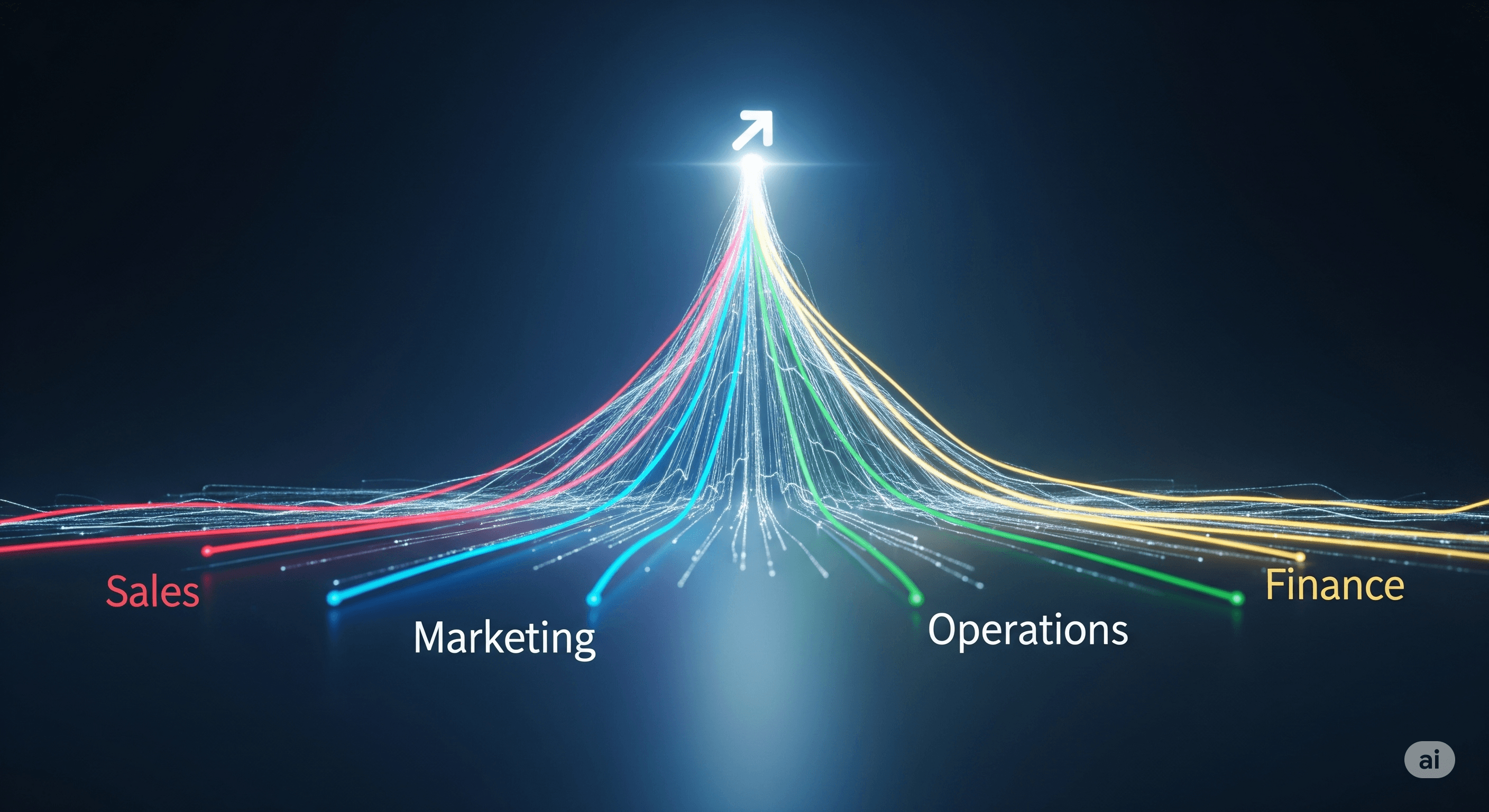Many business owners find themselves trapped in the same cycle: they work tirelessly to make sales, become the driving force behind every deal, and feel that the business will crumble if they aren't directly involved. They often become the "superstar" of their own company.
While this drive is crucial for initial growth, it can become your biggest long-term obstacle. When you're the only person holding the keys to every aspect, your business cannot grow beyond your capacity. Operational sustainability, the foundation of long-term success, can only be achieved when you shift from being an operator to an architect.
The "Superstar" Trap and Personal Dependence
It's easy to fall into this trap. When you start, you have to do everything—sell, service customers, manage operations, and put out fires. However, if you never transition out of this role, you create a bottleneck that chokes off growth.
- Bottlenecking: When every important decision has to go through you, processes slow down to a crawl.
- Risky Dependence: If you're unavailable, whether for a vacation or illness, your business could grind to a halt.
- Endless Workload: You'll constantly feel exhausted from having to handle every minute detail.
An overemphasis on sales often masks these underlying problems. While revenue might be coming in, your business's internal structure may be fragile and unsustainable.
From Operator to Architect: The Power of Building Systems
A successful business is not about one incredible person; it's about an incredible system. A system is a clear set of processes, procedures, and rules that allow a business to run efficiently and consistently, even without your direct intervention.
Building a system means you are creating a machine that can run itself. This involves:
- Documenting Processes: Write down exactly how every task is completed, from how you manage an order to how you handle a customer complaint or run a marketing campaign.
- Creating Clear Workflows: Define a logical sequence of steps for every process so that a new employee can quickly get up to speed.
- Using Technology: Leverage tools like a CRM, project management software, or accounting software to automate repetitive tasks.
The Owner's New Role: Leading Through Delegation
Building a system also means building a competent and empowered team. As the owner, your new role is not to do the work, but to define the work.
Here's how you do it:
- Identify Key Responsibilities: Break down your business into all its major areas (e.g., marketing, sales, operations, finance, customer service).
- Create Clear Job Descriptions (Jobdescs): Don't just give out tasks; assign responsibilities. Write a concise yet comprehensive job description for each role. This should include goals, daily tasks, and the metrics used to measure success.
- Delegate with Trust: Once you've defined the roles, trust your employees to do them. Give them the resources and support they need, but avoid micromanaging.
- Focus on Results, Not Process: Instead of worrying about how they're doing something, focus on the results they achieve. This empowers employees to find their own solutions and fosters a sense of ownership.
The Payoff: Operational Sustainability and True Freedom
When you successfully build a system and delegate tasks, the rewards are immense.
- Scalability: Your business is no longer limited by your own capacity. You can replicate successful processes to open new locations, launch new products, or serve more customers.
- Consistency: A well-documented system ensures that your product or service always meets the same quality standards, regardless of who is doing the work.
- Owner's Freedom: You can step back from day-to-day operations and focus on the work of a leader—building strategy, innovating, and planning for the future. You can finally work on your business, not just in it.
Making this change can feel daunting, but it's the most important step you can take to ensure your business not only survives but thrives for the long term. Start today by choosing one small area of your business to systemize and define its role.
